The Importance of Connection With Advanced Endometrial Cancer
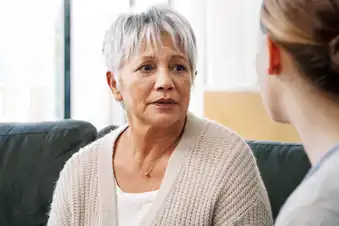
Endometrial Cancer and Your Emotions
When you're diagnosed with advanced endometrial cancer, treating the disease is your first priority. But your emotional health is important, too. Both the cancer and its treatments can harm your quality of life, negatively affect your relationships, and cause emotional distress. Having the right social support and connections are essential to your emotional well-being as you go through the treatment journey.
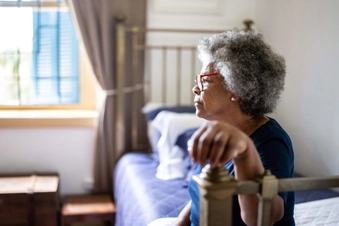
Social Isolation Affects Women of Color
Black women with endometrial cancer may face even more challenges. They're more likely to be diagnosed at a later stage and to die from their cancer than White women. Women of color may also be at greater risk of social isolation due to stressors like financial problems, lower-quality care, or poor communication from their doctors. A lack of social support can lead to worse outcomes in people with cancer.
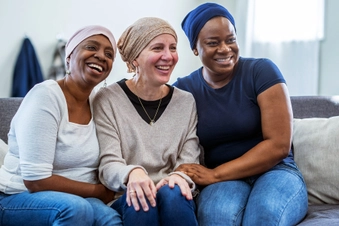
What Is Social Support?
Social support is a network of people who are there when you need them to offer emotional help and other assistance. Your network may include family members, friends, neighbors, co-workers, members of a support group, or your treatment team. They can comfort you, calm your anxiety, and help you deal with any problems that arise. Having good social support makes it easier to cope with the stresses of endometrial cancer.

Connecting With Your Cancer Team
Your doctors are part of your social network. They will play a big role in your life during endometrial cancer treatment. It's important to find doctors you trust. They should listen to you, answer your questions, and communicate clearly about your treatments and their possible side effects. People with cancer who feel like their doctors understand and support them tend to have less depression, anxiety, and distress.
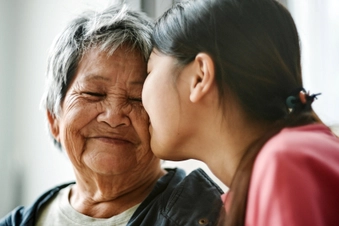
Keep Family Close
Endometrial cancer doesn't only affect you. It also touches the people close to you. Family and friends can offer emotional support and make daily life easier so you can focus on your treatment. People with endometrial cancer who have good family support have a better quality of life and fewer emotional problems. Because your family may not know how to support you, consider getting family counseling or ask your doctor for advice.
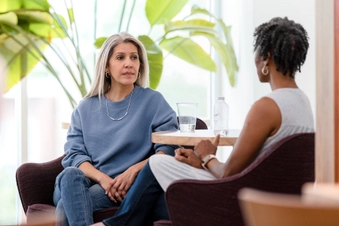
Endometrial Cancer Counseling
Anxiety and depression are common during cancer treatment. Caring for your mental health now is just as important as caring for your physical health. Support from professionals like a social worker, counselor, therapist, or psychologist can help you cope with emotional challenges. Your cancer hospital may offer these resources. If not, be open with your doctor about your concerns. They can connect you with the right mental health care.
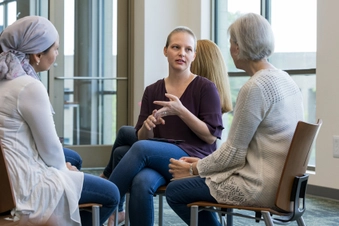
Support for Endometrial Cancer
Even if you have a community to help you, joining an endometrial cancer support group has benefits. You'll be surrounded by people who've had the same experiences and want to share what helped them. A support group can make you feel more hopeful and less alone. Cancer hospitals offer in-person groups. If you can't get to a local support group or one doesn't exist, consider joining a virtual group that meets online.
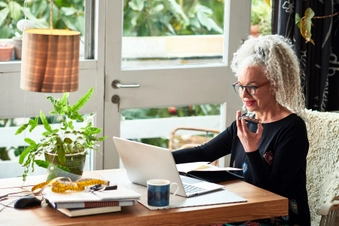
Endometrial Cancer Community
Connecting with others in the endometrial cancer community will make you feel less alone. Experts and fellow cancer patients offer support and help you navigate treatment questions and day-to-day concerns. Organizations like Cancer Support Community, CancerCare, and the American Cancer Society offer free phone support, education, and online communities. ECANA – the Endometrial Cancer Action Network for African Americans – provides support for African American women with endometrial cancer.
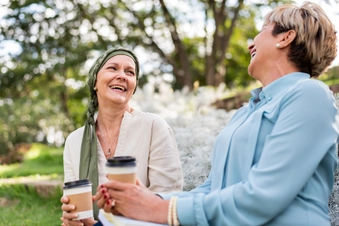
Build a Friendship Network
Caring friends can also help prevent loneliness and isolation. Sometimes, friends want to support you, but they don't know what to do or worry they'll say the wrong thing. Let them know what you'd like to talk about and what you need from them. Friends can help by going with you to appointments, cooking for you, and babysitting your children. Sometimes, it helps just to hear their voice over the phone or have them sit beside you.

Adjusting to Life With Endometrial Cancer
Feeling lonely, scared, and sad is a normal part of life with endometrial cancer. It's important to acknowledge these feelings, share them with the people who care for you, and know that you don't have to face them alone. Talk to the people you trust – like your family, friends, and doctors. Join a support group. Make an appointment with a therapist or counselor who can help you cope better and feel more in control.
Show Sources
IMAGES PROVIDED BY:
- E+/Getty Images
- E+/Getty Images
- E+/Getty Images
- E+/Getty Images
- E+/Getty Images
- E+/Getty Images
- E+/Getty Images
- DigitalVision/Getty Images
- E+/Getty Images
- E+/Getty Images
SOURCES:
American Cancer Society: "ACS Patient Programs and Services."
Cancers: "Model of Social Support for Patients Treated for Cancer."
Cancer Research UK: "Coping with Womb Cancer."
Cancer Support Community: "Get Support."
ECANA: "We Are Survivors."
Frontiers in Oncology: "Perceived Social Support and Quality of Life in Endometrial Cancer Patients: A Longitudinal Study."
Healthy Women: "Living with Endometrial Cancer."
Journal of Comparative Effectiveness Research: "Study Protocol for the Social Interventions for Support During Treatment for Endometrial Cancer and Recurrence (SISTER) Study: A Community Engaged National Randomized Trial."
Journal of Gynecologic Oncology: "Psychiatric Comorbidities Among Endometrial Cancer Survivors in South Korea: A Nationwide Population-Based, Longitudinal Study."
National Cancer Institute: "Cancer Support Groups," "Social Support."
UW Medicine: "Could Isolation Hurt Black Women with Endometrial Cancer?" "Social Support Weighted in Endometrial Cancer Outcomes."